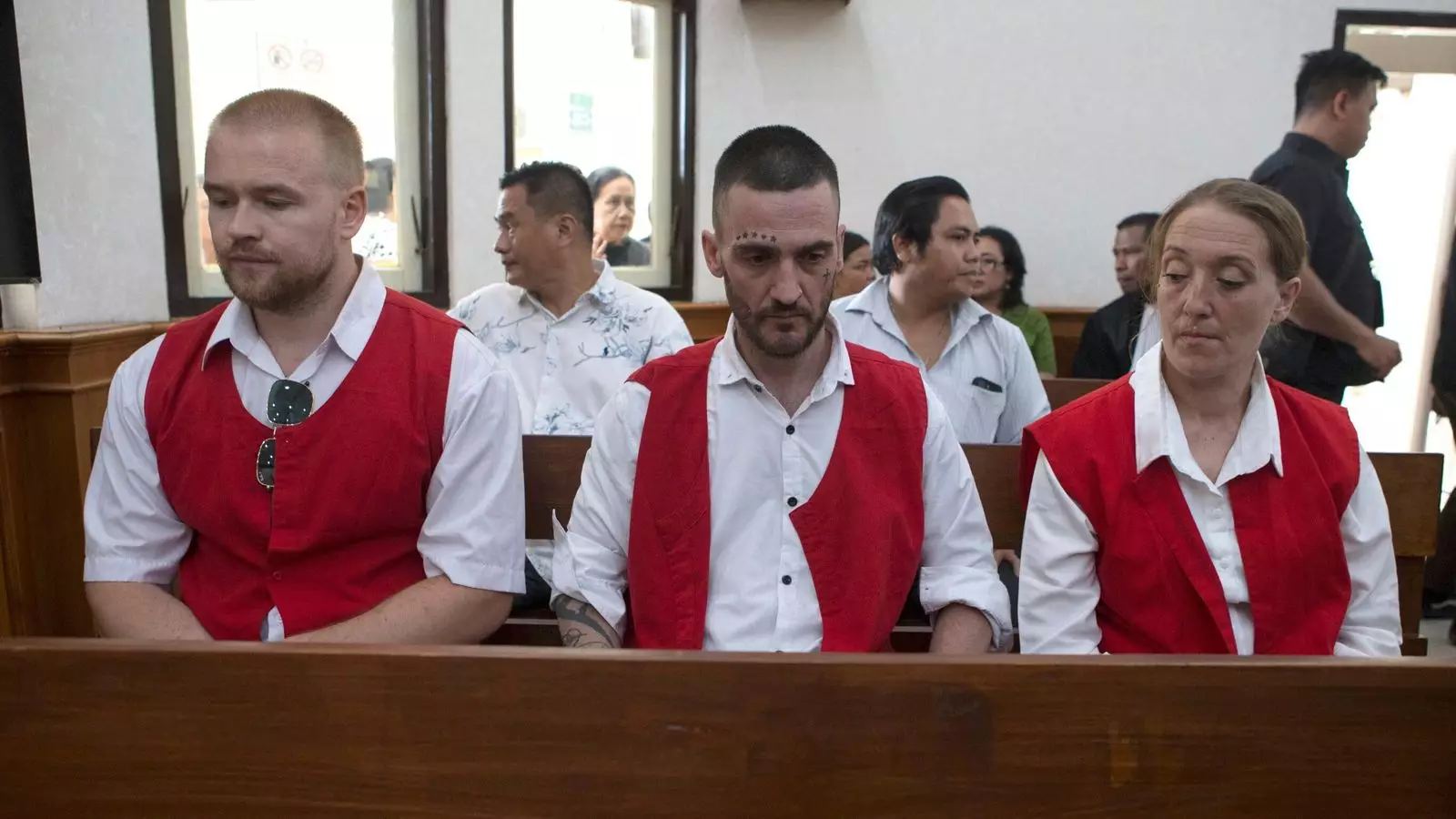The recent case of three Britons charged with smuggling nearly a kilogram of cocaine into Bali has reignited the debate over Indonesia’s harsh drug laws and their implications for foreign nationals. This incident highlights not just the perilous nature of drug trafficking, but also the unsettling consequences awaiting those who dare to engage in such illegal activities in a country where penalties can be unforgiving. The arrests, involving Jonathan Collyer, Lisa Stocker, and their accomplice Phineas Float, paint a vivid picture of a grim reality: the possibility of facing the death penalty for their transgressions.
As shocking as it may seem, Indonesia firmly stands as a bastion of stringent drug policies intended to deter drug-related offenses. The consequences are starkly depicted by historical examples; convicted smugglers often face the firing squad. With over 530 individuals, including a significant number of foreigners, languishing on death row, one cannot help but question the moral underpinnings of such severe sanctions. Is this the society we wish to create—one where the death penalty looms over every drug-related crime, irrespective of intent or circumstances?
The Dark Allure of Drug Trafficking
For many, the temptation of participating in drug smuggling may stem from economic desperation or the allure of quick financial gain. However, this case exemplifies a haunting reality: the fleeting nature of such rewards can lead to catastrophic, life-altering consequences. The fact that Collyer and Stocker had successfully smuggled drugs into Indonesia on two previous occasions only serves to underline the dangerous pattern that many traffickers fall into. It is as though the high stakes of drug smuggling create an intoxicating, albeit perilous, game that all too often ends fatally for participants.
In a society on the brink of epidemic drug abuse, the international criminal organizations that exploit regions like Indonesia must be scrutinized. These syndicates prey on vulnerable individuals, guiding them down a treacherous path, all while remaining insulated from the repercussions faced by their pawns. The system can feel rigged: traffickers receive maximum sentences while the masterminds behind the operations evade justice. This raises further questions about equity and fairness within the legal framework, which punishes the individuals who may have been trapped within a cycle of exploitation.
Fallen Lives and Forgotten Destinies
Consider the tragic tale of Lindsay Sandiford, a Briton on death row for more than a decade after her arrest for carrying nearly four kilograms of cocaine. Her story is not unique; it reflects the grim realities faced by many who find themselves caught in this relentless cycle of drug trafficking. Sandiford’s prolonged imprisonment exemplifies how the legal system can sometimes overlook the nuances of individual circumstances, focusing too rigidly on the crime without considering deeper social contexts.
The case also brings to light a worrying trend: the growing presence of foreign nationals within Indonesia’s drug enforcement statistics. As various international reports indicate, younger generations in Indonesia may be particularly susceptible to the lure of drugs, which acts as a siren call for international syndicates seeking new markets. The solution should not simply be the imposition of draconian laws but rather an approach that addresses the root causes of drug dependency and offers educational and rehabilitation programs instead.
A Call for Compassion and Dialogue
While the severity of Indonesia’s drug laws serves a purpose—to discourage trafficking and protect communities—the draconian application of these laws creates a chilling environment. It is imperative that discourse around drug policy begins to evolve, emphasizing rehabilitation and education over draconian punishment. Let us consider the possibilities that arise through compassionate dialogue and collaborative international efforts to combat drug trafficking.
Initiatives such as educational campaigns, harm reduction strategies, and fostering open communication can empower individuals, providing them with viable alternatives to drug smuggling. There’s a pressing need for structural changes that reflect a broader understanding of the complexities surrounding drug-related offenses, especially in a country that is increasingly becoming a focal point for global drug trade.
As the trial unfolds for Collyer, Stocker, and Float, the world watches closely. Their fate may seem sealed, yet they embody the larger narrative of human suffering tied to drug trafficking. It’s time for policymakers, both domestically and internationally, to reconsider the approach towards drug crime, prioritizing human dignity and the promise of redemption in a world often devoid of mercy.


Leave a Reply